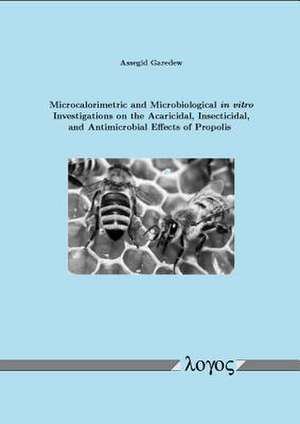Microcalorimetric and Microbiological in Vitro Investigations on the Acaricidal, Insecticidal, and Antimicrobial Effects of Propolis
en Limba Engleză Paperback
Preț: 441.25 lei
Nou
Puncte Express: 662
Preț estimativ în valută:
84.43€ • 88.15$ • 69.88£
84.43€ • 88.15$ • 69.88£
Indisponibil temporar
Doresc să fiu notificat când acest titlu va fi disponibil:
Se trimite...
Preluare comenzi: 021 569.72.76
